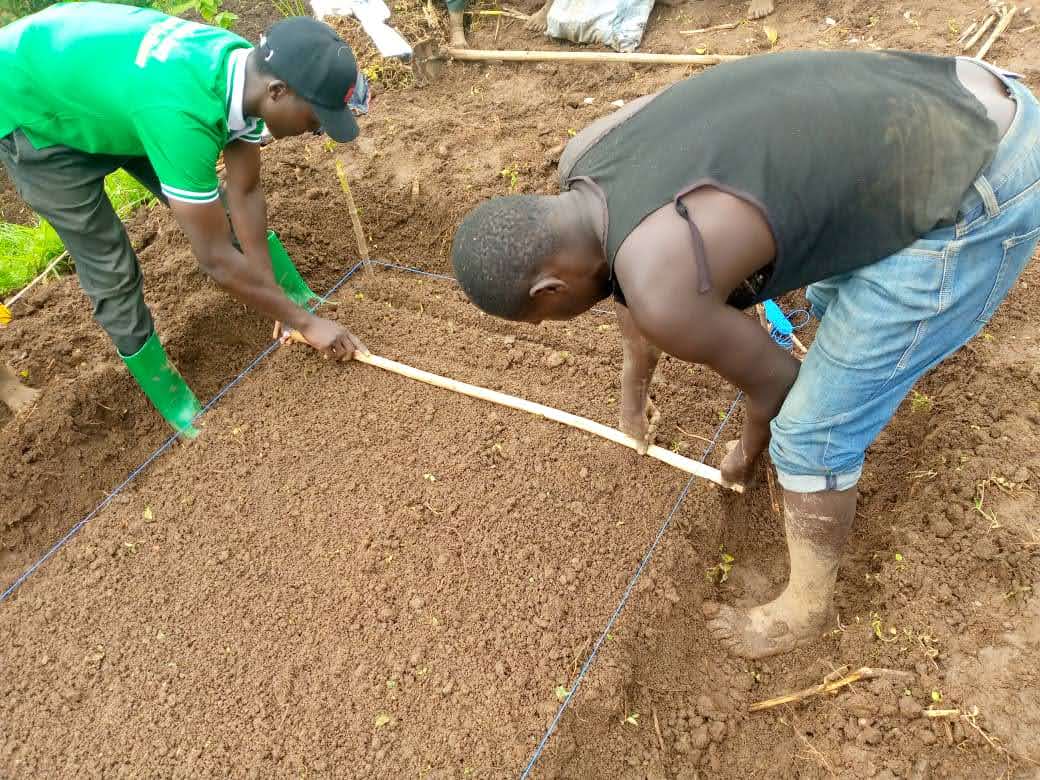Improving Food Security and Economic Opportunities in Rwanda
Rwanda is a landlocked nation in East Africa known for its rolling hills, tropical climate, and wildlife conservation efforts. The country is nicknamed “Land of a Thousand Hills” and has a rich geography of mountains, savannahs, and lakes.
Agriculture is fundamental to Rwanda. According to Think Global Health, 85 percent of the Rwandan workforce labors in agriculture– which is why it is essential that the farmers have the necessary tools and support they need to sustainably and safely engage in farming practices.

Many problems currently persist in the sector including food insecurity, poor crop yield, unsustainable farming practices, and financial illiteracy among farmers. To address these issues, The Salvation Army World Service Office (SAWSO) has been supporting an agriculture project in the Muko region of Rwanda that seeks to empower the local farmers to grow crops sustainably while also increasing the diversity of foods they eat in their homes.
The project began in August 2022 with a careful analysis of the Muko region near the southwestern part of the country. The Salvation Army Rwanda and Burundi Command first conducted extensive training to prepare village leaders to teach members of the community throughout the project. Among the 300 Muko participating community members, 12 were selected as community facilitators whose role is to teach community members about innovative approaches to agriculture and facilitate group sessions.

This project has a focus in conservation agriculture, a method of farming that promotes long-term soil health, plant biodiversity, and resilience to heat and drought. Through a hands-on approach to learning, the farmers learn sustainable agricultural practices to increase their yield and income, and also to protect soil. Demonstration plots allow the farmers to test fertilizers and experiment with crop growth, and then take the skills they learn and apply them to their own plots.
The demonstration plots have been very successful with the local farmers. They provide an extremely valuable learning experience for the local village members, who have been nothing but enthusiastic about participating and learning how to improve their farming techniques and boost their yield.
"The famers are very excited to learn new techniques and even teach their neighbors who are not in the program,” said Francois Nsengimana, Head of the Development Office for the Rwanda and Burundi Command.

One of the ways this has been implemented is through a banking system called Village Saving and Loan Associations where program participants can take out loans to buy land and livestock like pigs, goats, and chickens, as well as other purchases like school material for their children. Financial literacy is an important secondary goal for this project because empowering others to learn these business models sets them up on a solid foundation for self-sustaining practices in the future.


Benjamin Iryumugabe, one of the Project Coordinators, says that a challenge he predicts is encouraging the program participants to shift their mindset when it comes to adopting new sustainable practices, but he is confident that as more time passes and the farmers grow accustomed to the teachings in the field schools, this concern will fade.
This project will be ongoing for three years. During that time, SAWSO is looking forward to seeing the growth of the Rwandan farmers as they learn skills necessary to improve the quality of life. To support the work of SAWSO including vital agriculture and livelihoods programs like this, please visit www.salarmy.us/world-service.
